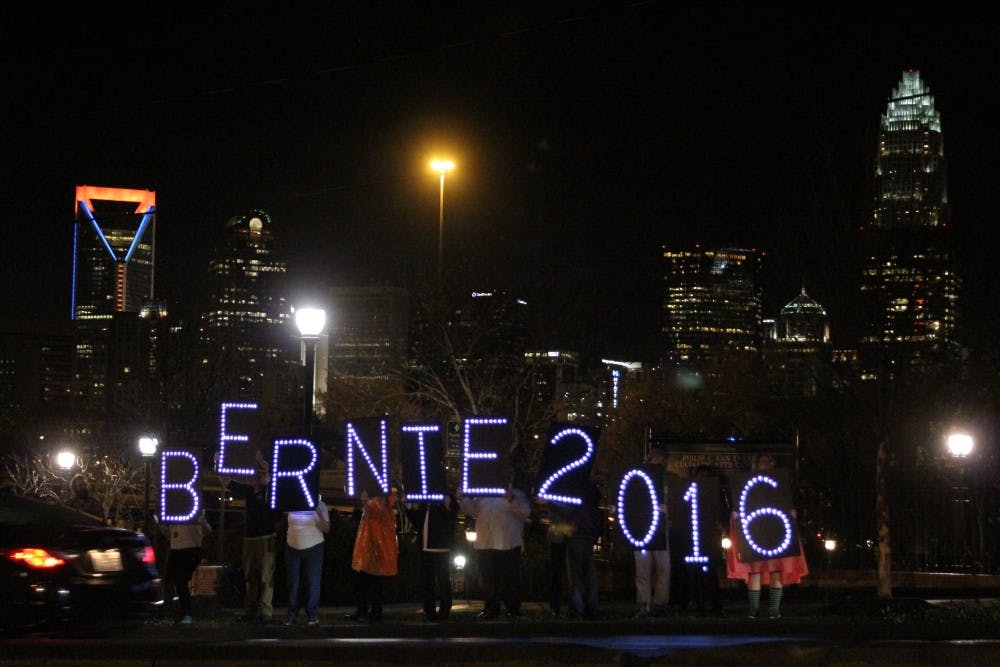Eight years ago, former Secretary of State Hillary Clinton entered the presidential election season the same way she did this year — as the favorite to win the Democratic Party nomination. But the outcome did not match the expectation.
Like 2008, Clinton is the favorite to win this year. According to Elon University Assistant Professor of Political Science and Elon Poll Director Kenneth Fernandez, Bernie Sanders' (I-VT) chances of pulling off an upset similar to President Barack Obama's in 2008 is highly unlikely.
“I think this is a very different dynamic than in 2008,” Fernandez said. “Clinton came into the 2008 election as the front-runner and Obama was not really well-known but became the dominant player fairly quickly.”
Sanders resembles Obama in his rise from anonymity, but differs in that he did not have as much early success on the campaign trail. After wins in smaller states and in the Midwest, Sanders’ momentum was stifled last week when Clinton won New York — Sanders' state of birth — by 16 percent. With the victory, Clinton took a 700-delegate lead, making it nearly impossible for Sanders to receive his party’s nomination.
“This is clearly suggesting that although it is still mathematically possible for Sanders to win, it is highly improbable,” Fernandez said. “He would have to do tremendously well in the remaining states.”
Freshman Cooper Watt, a New York native, said he supports Sanders and would have voted for him if he was home. While he respects Clinton's win, he looks forward to seeing what the remainder of the election holds for Sanders.
"I thought he was going to do a little better, but there are still a lot of states left, so we'll have to wait and see," Watt said.
With delegate-rich states such as Pennsylvania (189), Indiana (83) and California (475) on the horizon, Sanders still has some hope.
In the most recent Elon Poll, Sanders beat Republican frontrunner Donald Trump and Ted Cruz (R-TX) by at least 10 percent in the general election. If Sanders were to somehow secure the nomination, he would perform better than Clinton in head-to-head general election matchups. Fernandez said he does not foresee Sanders dropping out of the race until mid-June, which would be the same time Clinton admitted defeat to Obama in 2008.
“If you believe in what you’re fighting for, and you believe that by remaining in the race you can affect the dialog, the rhetoric and agenda, why put down that microphone when it gives you a mechanism to say that these issues matter?” Fernandez said.
Issues that Sanders consistently speaks on are inequality, campaign finance reform and corporate corruption. Sanders has said on multiple occasions he would solve issues by granting free tuition to public universities with a tax on Wall Street speculation.
Because Clinton has held prominent positions and has been in the national spotlight for several decades, she also has a 52 percent unfavorable rating, according to a recent CBS News/New York Times poll. Esteemed positions like U.S. Senator, First Lady and Secretary of State can be used as ammunition against Clinton for Sanders to market to people tired of the political system. Even if Clinton wins the nomination, Fernandez said Sanders' presence will still be felt because his defeat may deter Millennials from voting. This could hurt Clinton's chances of becoming the next president
"Sanders is saying things that, you know, are in some cases pretty outrageous," Fernandez said. "He’s talking about a revolution, a social movement — and that’s attractive to young people. As long as he can continue to get a lot of people to come to his rallies, that shows that he is legitimately a force to be reckoned with."


